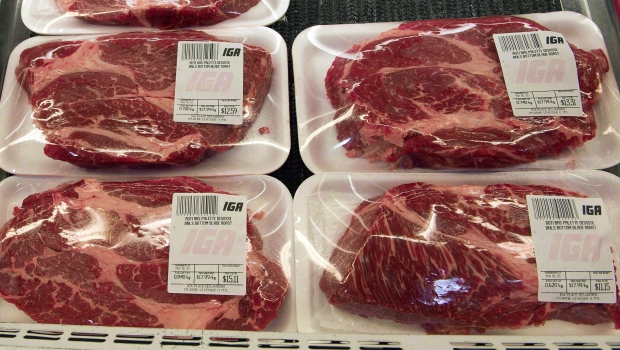Milk, for example, may develop an off flavour after the best-by date but it won’t necessarily make you sick. It may be fine to use in baking, for instance.
“If you’re making good old Maritime biscuits, sour milk is a great thing and bakers have been using that kind of thing forever,” said Taylor.
“For the most part, a lot of these foods can be used well past their dates. Yogurt is a really good example. There might be a little bit of seepage of liquid coming out but it’s perfectly fine if you stir it up.”
Taylor cautioned this if for unopened packaging only, though. She said the lifespan changes once a can or tub has been opened.
When to throw it out
A best-before date does not mean food becomes garbage the day after the one specified, she said.
Frozen meat will also keep longer than labelled, she said. If it has freezer burn or is dry around the edges, it might not taste as good, but it won’t hurt you. It could still be used in a dish combined with other foods, such as chili or tacos.
The dates on some products should be closely heeded, Taylor cautioned. One example is infant formula. The nutrition value of formula will degrade, and it can’t be relied on for your baby after the date is past.
“Absolutely packaging cannot be punctured, it cannot be rusted, it cannot be bulging, anything like that,” said Taylor.
“That’s black and white. You want to get rid of those. But a lot of the other things, we don’t need to be tossing food quite so quickly.”
There is a movement in the U.S. to remove some of the dates posted on products, she said, but not here in Canada.
The Canadian Food Inspection Agency, which regulates labelling, is reviewing the related rules and consulting with the public on what changes might be made.
“In 2019, the CFIA consulted with Canadians on changes to make the dates clearer and easier to understand,” the agency wrote in an email to CBC News.
“This work was delayed by the pandemic, but will be pursued in a future regulatory package. Canadians will be invited to provide comments on the proposed changes.”
While the work to make the meaning of the dates clearer is welcome, Taylor said it would be better if the dates were removed entirely for some foods.














